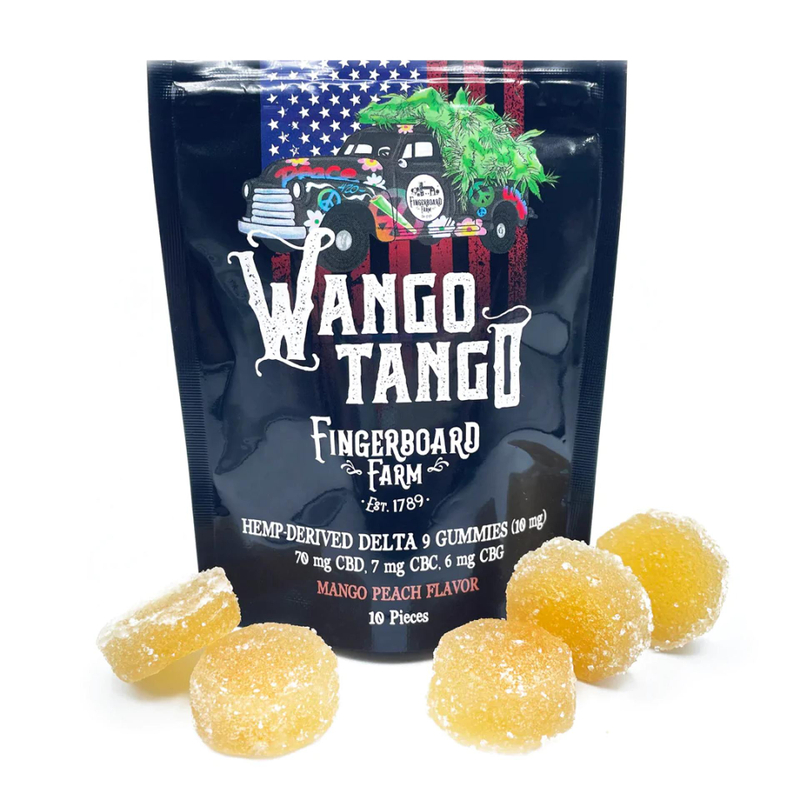Recently, publications and gas station convenience stores have been advertising "Tango Delta 8— a new legal kind of cannabis." If you've seen these advertisements, you might be thinking, "what the heck is that?". To some, Delta-8 may seem like a safe and inexpensive way to get high, but there are a lot of possible hazards and things to think about before giving it a try.
The big question is, how risky is Delta-8 in general?
If produced under strict controls, Delta-8 should be just as safe as Delta-9, as they have a very similar chemical structure. Some anecdotal evidence suggests advantages, including the alleviation of insomnia and increased appetite. Despite the similarities between Delta-9 and Delta-8 in terms of molecular structure and consequences, Delta-9 has been the primary focus of study since the 1970s. Because of how little Delta-8 is discussed, much of it likely originates in a completely uncontrolled industry.
Always verify your sources. There are a few products labelled as Delta-8 that make it into legitimate dispensaries, but if you try Delta-8 from an unofficial source, you should be aware that there are risks involved. It may be made in any location, even a home garage, and there is no oversight to guarantee that the manufacturing process results in a safe product. In comparison, everything you'll find at FingerBoard Farm or any other legitimate WA dispensary has been tested for germs, pesticides, and residual solvents from seed to sale. While this may appear limiting at first, the consumer who values safety can rest easy knowing that these rules are in place. There are no measurable quantities of THC or CBD found in cannabis under. concerning the Delta-8.
Whether or not you are aware of it, if you are a cannabis user, you are already familiar with Delta-9. Most people shorten THC to "THC," which stands for delta-9. It's what causes you to get high in the first place. The endocannabinoid system in the human body responds to a number of naturally occurring chemicals in cannabis, the most abundant of which is Delta-9 (except in some cases, where selective breeding produces higher concentrations of CBD). All the other chemicals, Delta-8 included, are present in negligible amounts.
To what end is Delta-8 produced, if hemp cannabis produces so little of it on its own?
Almost all Delta-8 is made in a lab by a chemical procedure that takes other plant chemicals and produces Delta-8. Due of recent overproduction, CBD is usually the starting material. While this may not sound horrible at first, it's important to note that most CBD sold outside of the legal cannabis market is actually a byproduct of the industrial hemp industry. Hemp is farmed commercially for its fibre and oil content, but not always to the same safety requirements as food-grade hemp. There is a lack of oversight and disclosure on the use of potentially dangerous pesticides.
In the last few years, the CBD industry has run into one issue: there is far more isolated CBD on the market than there is a need for. Growers and processors can take advantage of the current demand for Nano Delta 8 to move their stock before it degrades. If they care more about making money, though, than than keeping you secure, that's bad news. In addition, nobody is watching over the transformation of that material into Delta-8 because of the absence of regulation.
In order to achieve the desired "high," Delta-8 must be isolated (or converted) from the other compounds and then concentrated. This is why most Delta-8 products are sold as edibles or vapes. Since naturally occurring Delta-8 dominant hemp varietals do not exist, any Delta-8 flower you come across for sale was likely not cultivated in a natural environment. There is no evidence that the Delta-8 isolate used to treat this hemp bud is safe to burn, and the THC content is likely less than 0.3%.
The widespread acceptance of Delta-8 begs the question: why is it ever tolerated anywhere?
Delta-8 is currently in a legal limbo because of a gap in the language of the statute. For the purposes of the 2018 Agricultural Improvement Act, "legal hemp" or "cannabis" means the following. Any growing or non-growing portion of said plant, including the seeds thereof and any derivatives, extracts, cannabinoids, isomers, acids, salts, and salts of isomers with a delta9 tetrahydrocannabinol concentration of not more than 0.3 percent on a dry weight basis."
As a result, although Delta-8 and Delta-9 THC are comparably effective, the law's phrasing suggests that regulation applies exclusively to Delta-9. Scientific advances in cannabis processing and extraction procedures have made it possible to consume Delta-8 in amounts sufficient to elicit effects analogous to those of Delta-9. Twelve states have already outlawed sales of Delta-8, and other states are likely to close this legal gap as new legislation is introduced.
0


